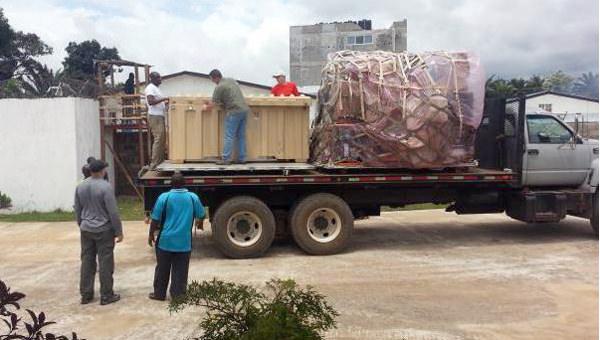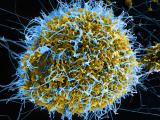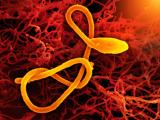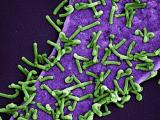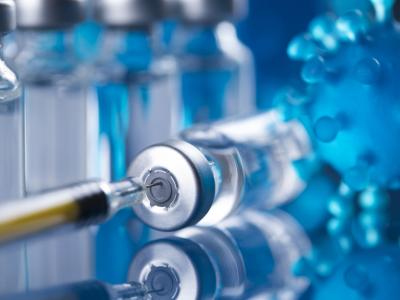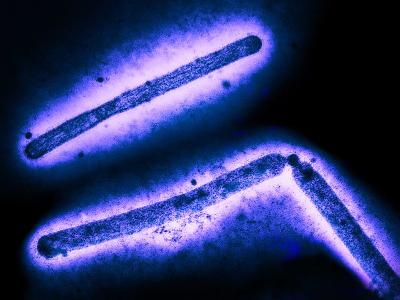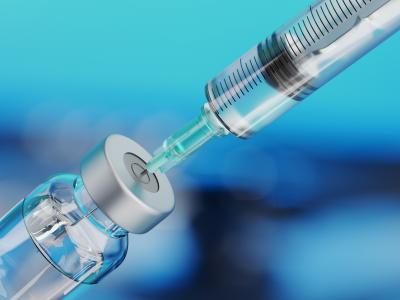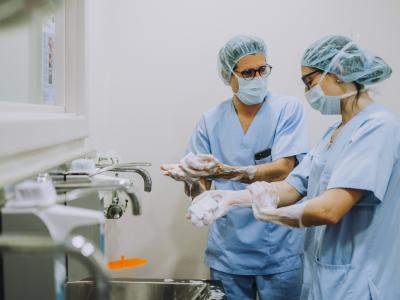The world's response to Ebola has been slow and uneven, and has leaned on local people, national governments, and nongovernmental organizations (NGOs) to do most of the hands-on work, Doctors without Borders (MSF) said today, while also urging the world to adapt to evolving developments.
The MSF's assessment of the Ebola epidemic comes alongside assessments from top officials at the World Health Organization (WHO) and United Nations yesterday, 2 months into the global surge response. They said that though safe burial goals have been met in all three hard-hit countries, intense disease activity is still occurring in western Sierra Leone, one of the stumbling blocks to reaching the isolation and treatment goal.
Quick, agile approach needed for next phase
The affected countries have received assistance from the international community, MSF said. However, foreign governments have mainly focused on financing or building Ebola treatment units, leaving staffing of the facilities to national and local authorities and NGOs, which may lack the needed expertise.
Training people to safely operate Ebola units can take weeks, and though MSF and other groups have been doing training, a bottleneck has led to significant delays, the group said.
Joanne Liu, MD, MSF's international president, said in a statement that people are still dying in an outbreak that has already killed thousands. "We can't let our guard down and allow this to become a double failure, a response that was slow to begin with and is ill-adapted in the end."
She said it's disappointing that countries that have biological-disaster response capacities aren't using them. "How is it that the international community has left the response to Ebola—now a transnational threat—to doctors, nurses, and charity workers?"
Gaps include a general lack of isolation and diagnostic facilities where cases are occurring, but also more specific problems, such as a lack of transport facilities for lab samples in rural Liberia and weak sensitization efforts in Guinea. MSF added that international groups seem unable to adapt to a fluid situation and shift their focus to other activities.
Liu said controlling Ebola goes beyond just isolation and patient care. "Wherever there are new cases, the full package of activities must be in place. Everyone involved in the response must take a flexible approach and allocate resources to the most pressing needs at any given time and place across the region," she said.
World Bank update shows worsening economic impact
The World Bank Group today released new estimates of the financial impact of the Ebola outbreak on Guinea, Liberia, and Sierra Leone, showing further dips in gross domestic product (GDP) for this year and projections for negative growth in 2015 for Guinea and Sierra Leone.
Today's report updates the World Bank's Oct 8 analysis and comes as World Bank President Jim Young Kim starts a 2-day visit to West Africa to gauge the financial fallout from the epidemic and talk to governments and aid groups about response needs. The group has mobilized $1 billion for the three countries.
Though all three countries had been growing rapidly in recent years, including the first half of 2014 in the outbreak's early months, the World Bank sharply revised the GDP growth estimates downward in October, and predicted further drops in its new report. For 2015, the group projects negative growth of -0.2% for Guinea and -2.0% for Sierra Leone. For Liberia, where signs of progress against the outbreak have been seen, along with some increasing economic activity, the World Bank projects a 3% increase, up from its 1% projection in October but less than half of the pre-crisis estimate of 6.8%.
The group put the income loss for 2014 and 2015 for all three countries at more than $2 billion.
Kim said in the statement, "This report reinforces why zero Ebola cases must be our goal. While there are signs of progress, as long as the epidemic continues, the human and economic impact will only grow more devastating."
In October, when case numbers were surging in all three countries, with the threat looming large to their neighbors in West Africa, the World Bank said the 2-year financial impact could range from $3.8 billion to $32.6 billion. The new report said that estimate is still valid, because the outbreak isn't under control.
Marcello Giugale, the World Bank's senior director of macroeconomics and fiscal management global practice, said the key to avoiding the higher number is not only to eliminate the disease, but also to invest in preparedness for neighboring countries. "A full-fledged recovery effort could help the affected countries improve on growth estimates and return to building their economies and reducing poverty."
CDC: 35 US hospitals designated as Ebola centers
The US Centers for Disease Control and Prevention (CDC) said today that 35 US hospitals have been designated as Ebola treatment centers, based on state evaluations in collaboration with local government and hospital officials. Each has been assessed on-site by a CDC Rapid Ebola Preparedness team, which so far has conducted assessments at 50 hospitals in 15 states and Washington, DC.
The three national biocontainment units that have already cared for Ebola patients—Emory University Hospital, Nebraska Medical Center, and the National Institutes of Health—will still play a role in the nation's Ebola treatment strategy, the CDC said, especially for patients who are medically evacuated from overseas.
All 35 of the facilities are prepared, trained, and ready to provide complex care for Ebola patients, while minimizing the risk to health workers, the CDC said. It estimates that more than 80% of travelers returning from West Africa live within 200 miles of one of the treatment centers. More Ebola treatment centers will be designated in the coming months, the agency said, with a priority on jurisdictions served by five international airports that are funneling all returning West African travelers for enhanced Ebola screening.
In a statement, CDC Director Tom Frieden, MD, MPH, said that as long as Ebola continues to spread in West Africa, health officials must prepare for the possibility of more cases in the United States. "We are implementing and constantly strengthening multiple levels of protection, including increasing the number of hospitals that have the training and capabilities to manage the complex care of an Ebola patient. These hospitals have worked hard to rigorously assess their capabilities and train their staff."
States that have Ebola treatment centers are California (4), Georgia (1), Illinois (4), Maryland (3), Minnesota (4), Nebraska (1), New York (5), New Jersey (1), Pennsylvania (2), Texas (2), Virginia (2), and Wisconsin (3). Three of the designated facilities are in Washington, DC.
Since enhanced screening protocols and active monitoring were implemented, more than 3,000 travelers have been monitored for fever and other symptoms more than 30,000 times by state and local health officials, the CDC said.
In addition to the designated Ebola treatment centers, the CDC said it has been working with states to identify hospitals that can assess and care for a patient having the first symptoms of Ebola for up to 96 hours pending transfer to a treatment center. It said 15 states that receive most of the travelers from West Africa have such plans in place.
Though the designated facilities boost the nation's Ebola readiness, the CDC emphasized that all health workers and hospitals should be trained to recognize Ebola symptoms and safely isolate potentially infected patients. It said 42 state and local labs can now test for Ebola, up from just two labs 4 months ago.
In a related development today, the CDC released guidance that walks states and hospitals through the process of identifying and designating an Ebola treatment center.
Other developments
- President Barack Obama visited the National Institutes of Health (NIH) today, where scientists briefed him on progress on an experimental Ebola vaccine developed by the National Institute of Allergy and Infectious Diseases (NIAID), part of the NIH, and GSK. The vaccine, called ChAD3, uses a modified chimpanzee adenovirus, and last week researchers reported promising results from the first human trial. In comments at the close of his visit today, streamed live on the White House Web site, Obama said touring the lab was a good reminder of the importance of government research and basic research. He said that though Ebola has faded from the news headlines, the fight against the disease is far from over. Obama said he is encouraged by the bipartisan attention the Ebola response has received and called on Congress to approve a $6.2 billion emergency funding package, which contains support for West Africa as well funds to shore up domestic emergency preparedness, by Christmas.
- The WHO today declared that Spain's Ebola outbreak is over, now that two 21-day incubation periods have passed since an infected nursing assistant tested negative for the disease. The woman was exposed to the virus in late September while caring for a Spanish priest who got sick with Ebola while working in West Africa. The Oct 6 confirmation of the woman's infection marked the first human-to-human spread of the virus outside Africa's outbreak region, the WHO said in a statement. Spanish officials monitored 87 people who had contact with the health worker and 145 hospital employees who had contact with the woman during her stay. No other infections were detected, and all have passed their 21-day monitoring period. The WHO commended Spain for the steps it took to identify potential cases and prevent further spread of the disease.
See also:
Dec 2 MSF statement
Dec 2 World Bank press release
Dec 2 CDC press release
Dec 2 CDC interim guidance for US hospital preparedness for possible or confirmed Ebola patients
Dec 2 White House Ebola fact sheet
